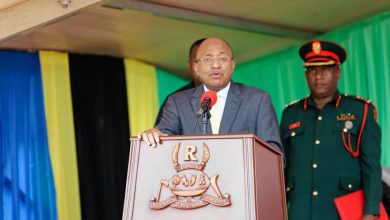Over 30 traditional remedies now offered at 14 regional referral hospitals

Dodoma: Now, a patient in Tanzania can choose to receive traditional medicine, conventional medicine, or both, following the Ministry of Health’s approval to offer traditional medicine in 14 regional referral hospitals across the country.
This follows the government’s research on 42 varieties of traditional medicines, of which over 30 were approved after being proven, beyond reasonable doubt, to be safe for human consumption.
The Government’s Chief Medical Officer, Dr Grace Maghembe, revealed this recently, during the opening of African Traditional Medicine Week at Chinangali Park in Dodoma, noting that, due to the improved standards of traditional medicines produced in Tanzania, the approved varieties are now being exported, reflecting the trust users place in them.
Dr Maghembe said that Tanzania is collaborating with the World Health Organization (WHO) by sharing information on research conducted in the field of alternative medicine, as the country is determined to formalize and strengthen the sector.
She noted that several public institutions, including Muhimbili National Hospital (MNH), the National Institute for Medical Research (NIMR), and Sokoine University of Agriculture (SUA) in Morogoro, are jointly conducting various studies on traditional medicines to ensure their safety for human use.
Also read: Tanzania roots for science-backed traditional medicine
Speaking on the commemoration, Dr Maghembe said African Traditional Medicine Week has been marked for the past 23 years, following its approval by African Heads of State and leaders in Lilongwe, Malawi.
She explained that the initiative was launched after it was established that about 80 percent of Africans, including Tanzanians, rely on traditional medications.
According to the Chief Medical Officer, this year’s commemorations are being marked under the theme: “Strengthening Traditional Remedies with Scientific Evidences.”
Representing Prime Minister Kassim Majaliwa at the well-attended event that brought together traditional herbalists, researchers, health specialists and manufacturers, Dodoma Regional Administrative Secretary (RAS), Dr Khatibu Kazungu, said the country has taken significant steps towards enhancing the traditional medicine sector.
Dr Kazungu outlined some of the measures taken by the government so far, including formulating a guiding policy for the industry, promoting research, and strengthening the regulation of natural medicine practitioners.
Addressing stakeholders at Chinangali Park, Dr Kazungu revealed that the National Institute for Medical Research (NIMR) has completed the installation of 39 machines at the traditional medicine factory in Mabibo, Dar es Salaam.
“The factory will produce quality medicines that meet international standards,” he stressed.
He further noted that while the State is improving the traditional medicine sector, it is also strengthening the wider health delivery system by purchasing modern medical equipment, expanding health infrastructure, and partnering with the private sector.
According to him, 75 percent of Tanzanians now live within 5km of a healthcare facility, thanks to the construction of over 4,000 new health centers between 2020 and 2025, which boosted the number of facilities from 8,783 to 12,846 nationwide.
Speaking on behalf of traditional medicine practitioners, Dr James Mussa commended the government for its initiatives to strengthen the sector.
He however called for closer collaboration with the authorities to crack down on pseudo-herbalists, who, he warned, undermine the industry and create confusion in communities.





